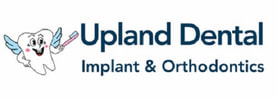- Home
-
Doctors
- William Hung, DDS: Dental Implant Specialist
- Emily Hung, DDS, MS: Orthodontist
- Amanda Budiman, DDS: Orthodontist
- Wesley Hung, DDS: Dentist
- Kelly Lee, DDS: Dentist
- Trang Do, DDS: Dentist
- Tina Sun, DDS: Periodontist
- Nischit Shah, DDS MSD: Periodontist
- Kathryn Le, DDS: Anesthesiologist
- Ian Woo, DDS, MD: Oral Surgeon
-
Our Services
- Blog
- Need a New Dentist?
- Contact
- Locations
|
We’ve talked about the basics of a root canal and how to stop a tooth ache in previous posts. Another common question I often get is: Do I need to see an endodontist for my root canal? Root canal treatment, or endodontic treatment, can be done by either a general dentist or an endodontist. Endodontists are dentists that specifically treat problems inside your tooth. With more specialty training, endodontists are more than qualified to perform all sorts of procedures, root canal treatment being one of them. A general dentist may choose to perform simple or routine root canals but some situations require the care of a specialist. For example: A patient that needs a second root canal on the same tooth after the first root canal failed. When the first root canal has failed, the procedure becomes more complicated with infection, bone loss, difficult to remove filling materials, etc. Endodontists have been trained to deal with these issues and provide the best treatment and outcomes possible. A patient with a complicated tooth anatomy that needs treatment from a specialist. Just like how every person is unique, every tooth is unique! Root canals can join and branch in varying patterns, have long curvy roots, or 2, 3, 4, 5 or even 6 roots! All of these differences impact the difficulty of the root canal. Endodontists use a special dental microscope to visualize the root canal better and provide high quality treatment. A patient that is in severe pain or has a large infection. Endodontists deal with “hot teeth” and swelling on a daily basis. When a patient is in this acute state, it sometimes takes more advanced techniques to get the patient out of pain fast. These are just a couple reasons you might be referred to an endodontist but of course there are many more. If you are unsure whether you need to be referred, make sure to check in with your dentist. Your dentist can guide you and make sure you are getting the best care possible. Blog post by our Endodontist Dr. Rita Hung. Proudly providing great dental care and root canal treatment in Upland, Rancho Cucamonga, Chino, and Wildomar.
3 Comments
Oral hygiene plays an important role to your overall health, since the oral cavity is constantly exposed to bacteria. The bacteria in our mouths can travel through our blood stream and cause infection in our body. Current research suggests that oral infection, such as periodontitis, can contribute to heart disease, pneumonia, diabetes, and even low birth weight. With proper oral hygiene practice, we can keep our teeth, gums and body healthy.
Most of you are already brushing twice a day, but you may not be doing it properly. There is actually a technique shown to effectively remove plaque, called modified bass brushing. Simply put, you hold the toothbrush horizontally and tilt it 45 degrees toward your gums. Then, you make short side-to-side strokes and flick the toothbrush towards the biting edge of your teeth. This allows the bristles to get underneath your gums to remove hiding plaque. Make sure to brush your tongue too. Brushing alone cannot remove all the debris between your teeth. So while flossing can be cumbersome, it must be done. If you haven’t flossed recently, you may experience some bleeding, but don’t worry. It’s perfectly normal. Bleeding is a sign of gingival inflammation, so flossing those areas well will improve your oral health. Hug each tooth with the floss and use scraping up and down motions on each tooth. Keep up your oral hygiene as daily maintenance is really important and will prolong tooth longevity. Also, make sure to see your dentist biannually for checkups and cleanings! Blog post by Dr. Wesley Hung, DDS. Proudly providing great dental care in Upland, Rancho Cucamonga, Chino and Wildomar CA. |
Archives
August 2021
Categories
All
|
|
Upland Dental Implant and Orthodontics
LocationsUpland - 1268 W. Foothill Blvd Upland, CA 91786 (909) 981-4111
Rancho Cucamonga - 11328 Kenyon Way Rancho Cucamonga, CA 91701 (909) 945-5800 Chino - 14335 Pipeline Ave #A Chino, CA 91710 (909) 902-0800 Wildomar - 34859 Frederick St Suite 106 WIldomar, CA 92595 (951) 678-9888 |
Services
|
© 2022 Upland Dental Implant & Orthodontics
- Home
-
Doctors
- William Hung, DDS: Dental Implant Specialist
- Emily Hung, DDS, MS: Orthodontist
- Amanda Budiman, DDS: Orthodontist
- Wesley Hung, DDS: Dentist
- Kelly Lee, DDS: Dentist
- Trang Do, DDS: Dentist
- Tina Sun, DDS: Periodontist
- Nischit Shah, DDS MSD: Periodontist
- Kathryn Le, DDS: Anesthesiologist
- Ian Woo, DDS, MD: Oral Surgeon
-
Our Services
- Blog
- Need a New Dentist?
- Contact
- Locations


 RSS Feed
RSS Feed